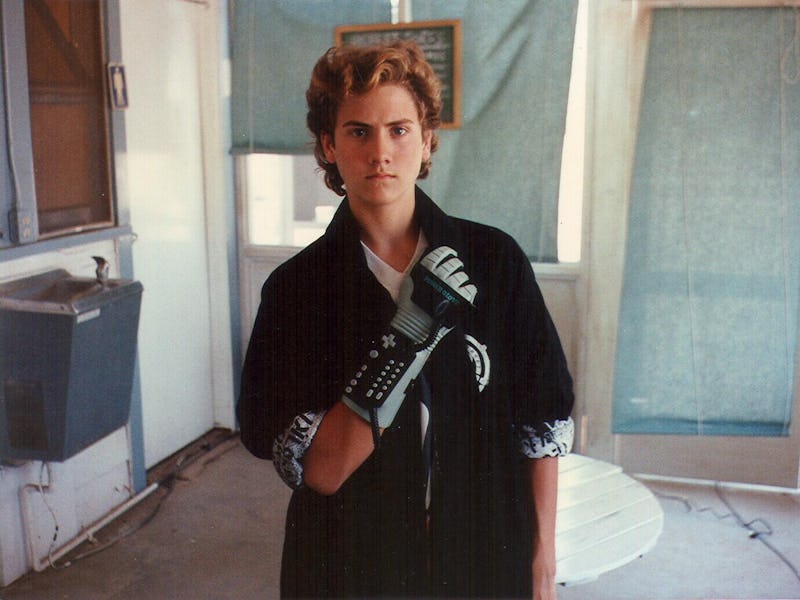35 Years Ago, The All-Time Worst Nintendo Accessory Was Also The Coolest
"It's so bad."

The triumph of most video games, and video game accessories is almost always down to functionality. No matter how great a game looks, or how slick a particular console was designed, aesthetics are somewhat secondary to popularity. In other words, if video games are a popularity contest, at least that popularity is based on how things actually work, rather than how they seem.
An exception to this rule is the Nintendo Power Glove, a video game accessory that is almost only valuable and interesting because of the way it looks and feels, rather than what it actually does. In the 1989 film The Wizard (a 100-minute Nintendo commercial masquerading as a family film), the villain of the movie Lucas Barton (Jackey Vinson) busts out the Power Glove and declares, “I love the Power Glove — it’s so bad.” By “bad,” Lucas meant “good” as in “cool” or “I’m bad, you know it” à la Michael Jackson. But, the irony here is that as an actual video game accessory, the Power Glove was literally bad. But if the Power Glove was really such a waste of time why do we still care so much?
The strange origin of the Power Glove
The instructions for the Nintendo Power Glove — good luck with it working correctly!
Although we think of the Power Glove as a Nintendo product, it wasn’t created internally by Nintendo at all. In fact, it started its life as a pipe dream piece of hardware that could be used as a high-tech musical instrument, dreamed up by Thomas Zimmerman in 1981. As he said in 2017, the goal was to make a “glove where you’d touch fingers to play chords.” Early on, Atari offered Zimmerman $10,000 for the rights to the tech, but he turned them down flat, believing a general concept of a “data glove” could have massive implications.
He was, of course, correct, and though it didn’t quite turn out the way he’d envisioned it. In a deal with Abrams Gentile Entertainment, the Power Glove was eventually marketed as a kind of toy, which, was a blessing and curse. Eventually, Nintendo got ahold of the basic design, and the rest, is more or less, history. Once it was decided the glove had to be in stores by Christmas, 1989, a gap between the glove and compatibility with existing games became an immediate problem. In fact, when the Power Glove hit stores, there were precisely zero games designed specifically for it. A game called Super Glove Ball didn’t hit stores for another full year, meaning developers had to reverse-engineer existing games (like Punch-Out) to work with the Power Glove.
This all led to a less-than-smooth rollout, and the Power Glove lost money, and was only on the retail market as a new item for one year.
For the Love of the Glove
tk
Despite what sounds like an utter failure in terms of cool video game functionality, the legend of the Nintendo Power Glove lives on. The early aughts rock band I Fight Dragons prominently used a modified version of the Power Glove to play music, manifesting the original sonic dream of Thomas Zimmerman. And, when it comes to how culture thinks about the 1980s, it’s as if every single kid was wearing a Power Glove at all times, and things were infinitely more awesome.
This is the basic disconnect between the fictional version of the 1980s and the reality. Just like the kids in Stranger Things have extremely accurate and realistic Ghostbusters costumes (which was simply not the case for most people) the Power Glove represents a way we’d like to think of the late 80s and old-school Nintendo, rather than any kind of true reality.
Had the the Power Glove not been pushed out so quickly, and perhaps, come loaded with games specifically designed for the Glove, it’s possible that its legacy would have been different. Or, at the very least, a little bit more concrete.
And because of all of that, thirty-five years later, the Nintendo Power Glove still haunts the dreams of gamers from all generations and will continue to be something that looks like a great fit for a certain kind of gaming, even if it never really worked correctly. Because, unlike other dead-ends in video game history, the Power Glove’s legacy is largely fictional, theoretical, and aspirational.